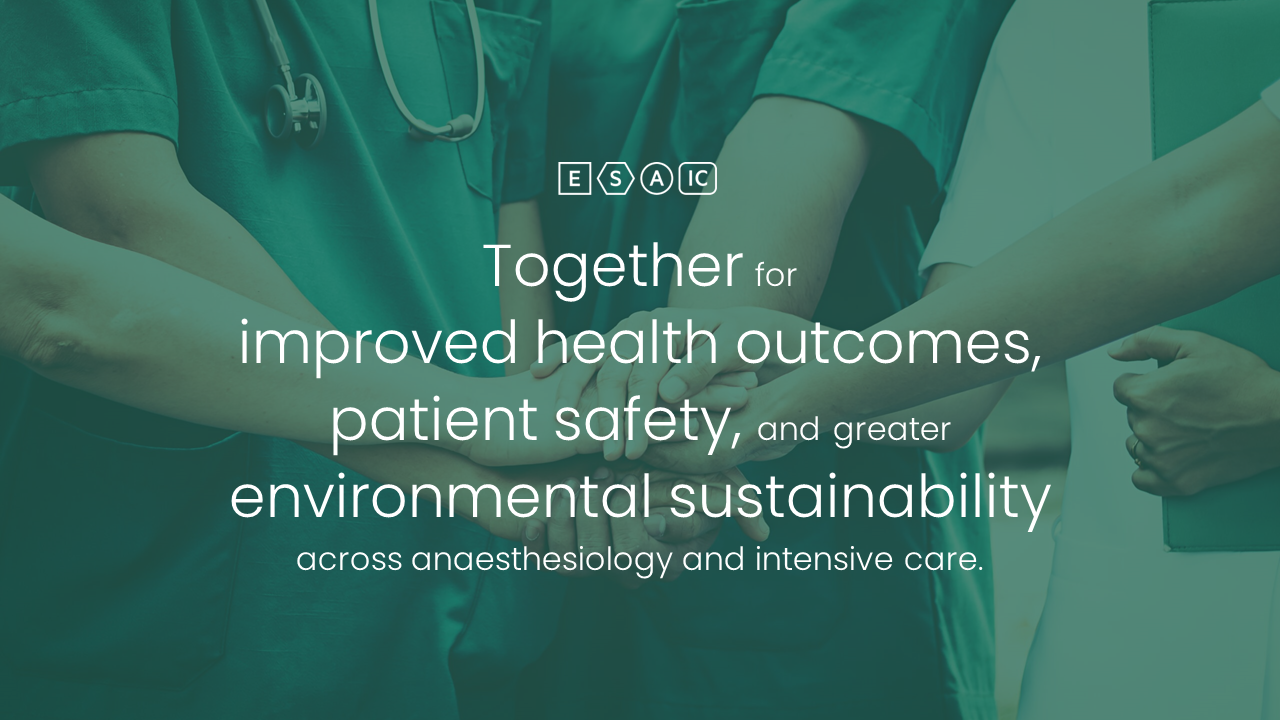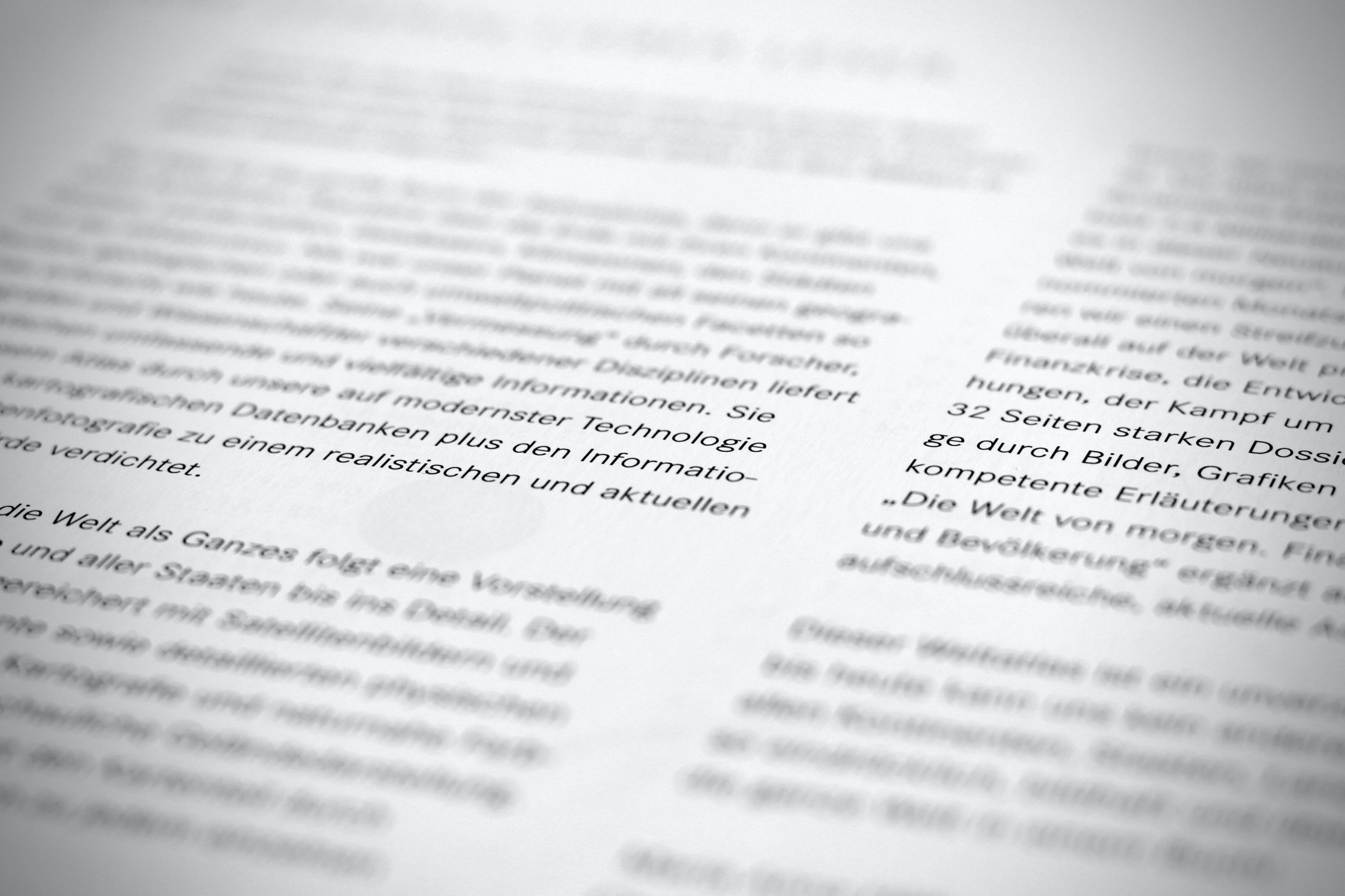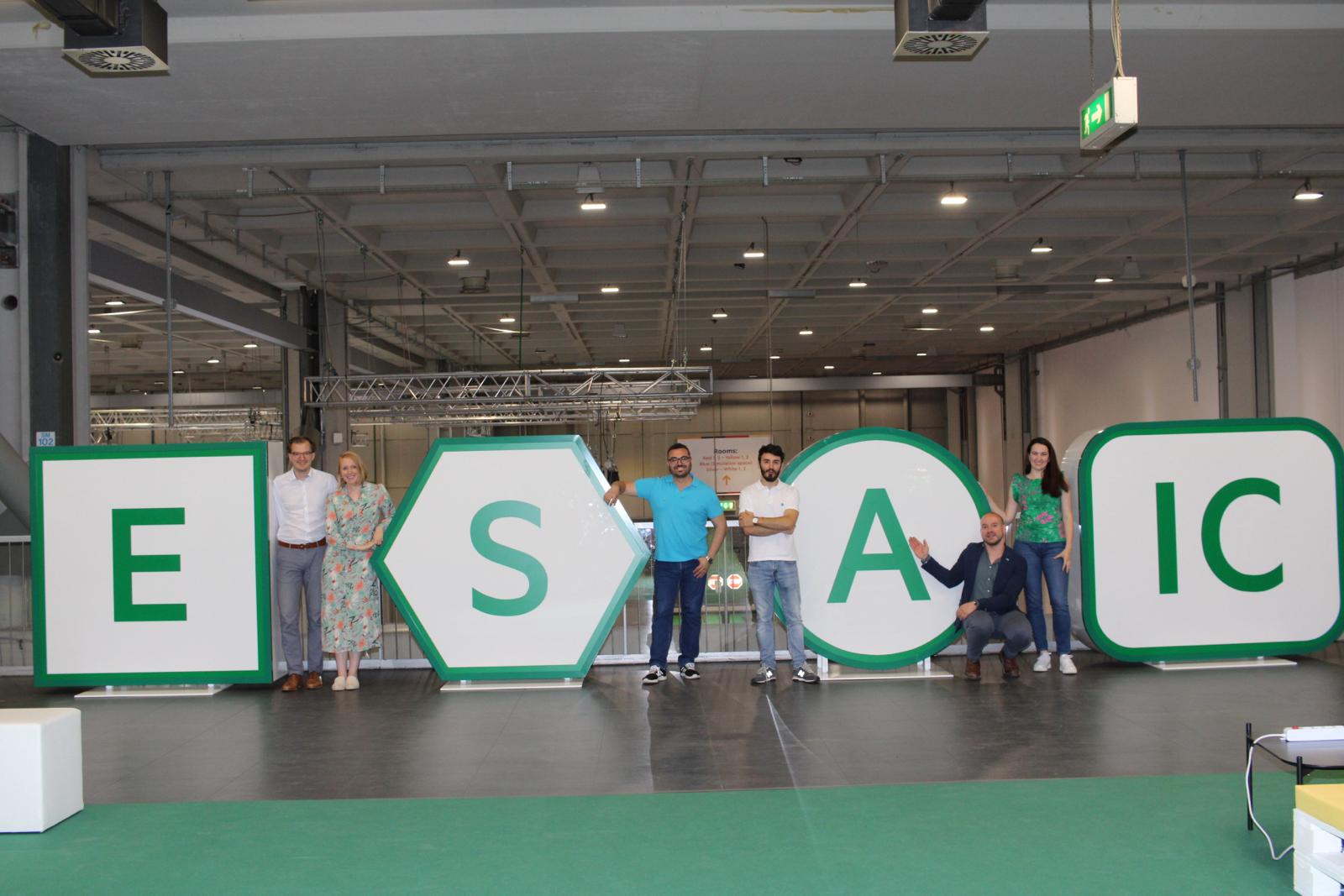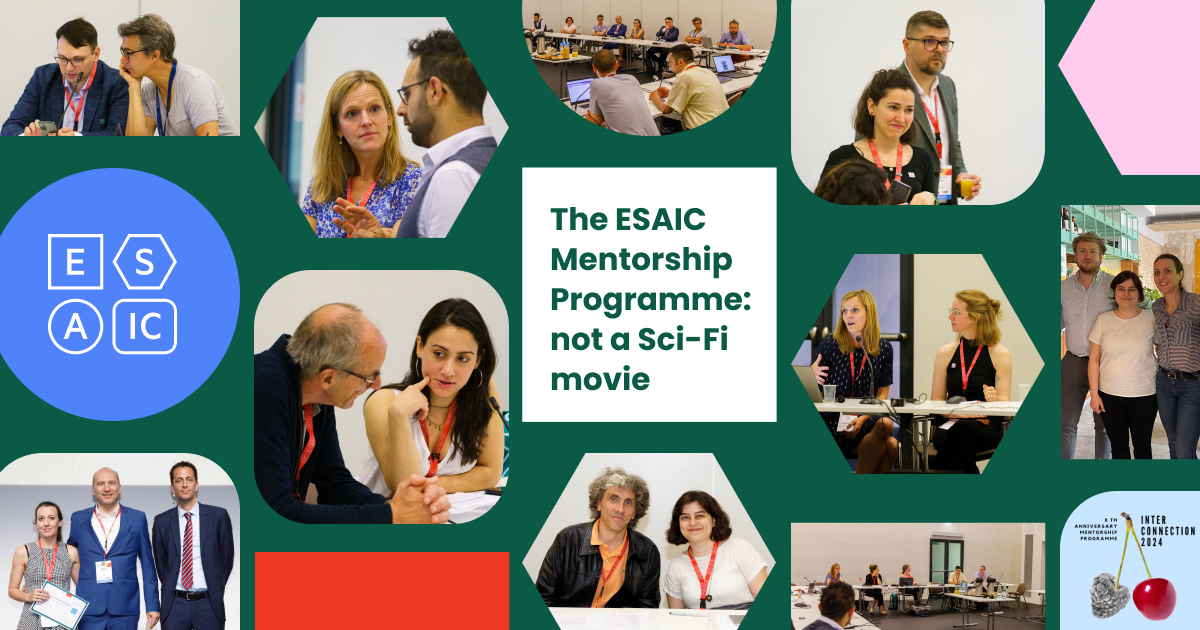ESAIC News
COVID-19 pandemic has shown the need to share precious intensive care bed resources across Europe
New research shows that a majority of European anaesthesiologists and intensive care specialists believe that precious intensive care (ICU) capacity should be shared between nations during international emergencies such as the COVID-19 pandemic, allowing countries with excess capacity to help those that are being overwhelmed at any particular moment.
The study is published in the European Journal of Anaesthesiology (the official journal of the European Society of Anaesthesiology and Intensive Care [ESAIC]), and is co-authored by Dr Elisabeth Adam, University Hospital Frankfurt, Germany; Professor Kai Zacharowski, President of ESAIC and also of University Hospital Frankfurt, Germany; Professor Stefan De Hert, Immediate Past President of ESAIC and University Hospital Ghent, Belgium, and colleagues.
During the first wave of the pandemic, countries such as Germany, which experienced a relatively low caseload and also have a higher number of ICU beds per head of population, were able to help other European nations that were temporarily or continuously overwhelmed with an excess of cases.
“Mass casualty events (MSE), such as the COVID-19 pandemic, can generate many critically ill patients that can overwhelm health care systems,” explain the authors. “When there are limited medical resources, recommendations for the preparation and management of such MSEs have suggested the use of a triage system for the fair and adequate allocation of the available resources. However, these recommendations tend to be based on ethical triage systems and do not address mechanisms that might balance overcapacity and overload of health care systems in some countries with availability of ICU beds in others, as seen during this pandemic.”
This new study assessed opinions on the acceptance of allocation strategies for managing patients and limited resources for critical care that are not based on ethical triage, but on existing international capacity.
The authors conducted a survey sent to the representative bodies (National Anaesthesiologists Societies Committee (NASC) and Council) of ESAIC, that includes experienced national key opinion leaders, anaesthesiologists and intensivists, across European borders. The objective was to provide expert opinions and guidance to facilitate the (ethical) burden currently facing these specialists on the front line of this pandemic.
A total of 74 responses were received from 42 countries representing ESAIC. The majority of the 74 respondents (84%) indicated that resources for COVID-19 were available at the time of the survey, taken during the first wave in April 2020. Of the representatives of the ESAIC governing bodies, 59% favoured an allocation of excess critical care capacity: of these, two thirds (69%) wished to make them available to patients from other countries, while one third (31%) preferred to keep the resources available for the local population of that country.
Regarding the type of distribution of resources, 35.3% preferred to make critical care available, 32.4% favoured the allocation of medical equipment and 32.4% wished to support both options (meaning in total some two-thirds were in favour of making critical care available to other nations). In total, of all consulted members of ESAIC, around 60% were in favour of the implementation of a centralised European institution to distribute such resources.
The authors say: “Strategies to manage critical care capacity during the COVID-19 pandemic may be politically charged and ethically controversial. They pose tremendous challenges for both health care providers and policymakers. As critical care bed numbers vary considerably between countries in Europe, an international platform that provides a dialogue on free, available and restricted resources should facilitate the planning and use of critical care resources in the future.”
They add: “The main finding of an emerging readiness to share critical care resources underscores the importance of establishing specific systems for further mass casualty events, such as further waves of the COVID-19 pandemic or other new, as yet unknown threats. The aim should be to assess and ultimately restructure inequalities of critical care supply resources to address shortages in the availability of critical care beds.”
They say that the devastating experience in Italy, and other countries since, has clearly demonstrated the limitations that can exist on a national level, despite the greatest efforts of all concerned to effectively manage a new pandemic.
They conclude: “Europe needs a tool to match the supply and demand of ICU beds for COVID-19 patients of the local population, based on infection rates and length of stay. Where demand exceeds supply, patients should be re-allocated on an international basis in close collaboration with the specialities responsible for treating patients with COVID-19 who are citizens of the European Union. This would be appropriately organised by a suitable political and medical institution to be implemented in the event of future crises requiring medical treatment beyond locally available capacity.”
Dr Elisabeth Adam, University Hospital Frankfurt, Germany. T) +49 69 6301 84791 E) elisabeth.adam@kgu.de
Professor Kai Zacharowski, President of ESAIC and also of University Hospital Frankfurt, Germany. Please e-mail to arrange an interview. E) kai.zacharowski@kgu.de
Professor Stefan De Hert, Immediate Past President of ESAIC and University Hospital Ghent, Belgium. Please e-mail to arrange an interview. E) stefan.dehert@ugent.be
Alternative contact: Tony Kirby of Tony Kirby PR. T) +44 7834 385827 E) tony@tonykirby.com










